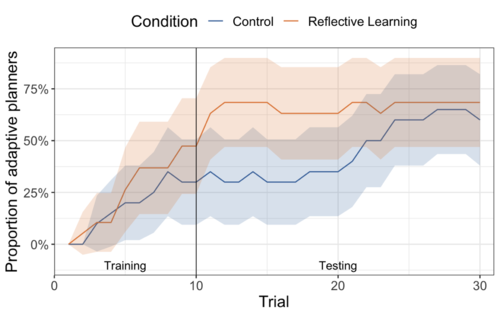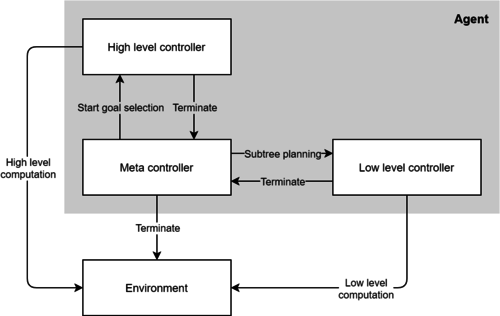Human decision-making is sometimes systematically biased toward suboptimal decisions. For example, people often make short-sighted choices because they don't give enough weight to the long-term consequences of their actions. Previous studies showed that it is possible to overcome such biases by teaching people a more rational decision strategy through instruction, demonstrations, or practice with feedback. The benefits of these approaches tend to be limited to situations that are very similar to those used during the training. One way to overcome this limitation is to create general tools and strategies that people can use to improve their decision-making in any situation. Here we propose one such approach, namely directing people to systematically reflect on how they make their decisions. In systematic reflection, past experience is re-evaluated with the intention to learn. In this study, we investigate how reflection affects how people learn to plan and whether reflective learning can help people to discover more far-sighted planning strategies.
In our experiment participants solve a series of 30 planning problems where the immediate rewards are smaller and therefore less important than long-term rewards. Building on Wolfbauer et al. (2020), the experimental group is guided by four reflection prompts asking the participant to describe their planning strategy, the strategy's performance, and his or her emotional response, insights, and intention to change their strategy. The control group practices planning without reflection prompts. Our pilot data suggest that systematic reflection helps people to more rapidly discover adaptive planning strategies.
Our findings suggest that reflection is useful not only for helping people learn what to do in a specific situation but also for helping people learn how to think about what to do. In future work, we will compare the effects of different types of reflection on the subsequent changes in people's decision strategies. Developing apps that prompt people to reflect on their decisions may be a promising approach to accelerating cognitive growth and promoting lifelong learning.



